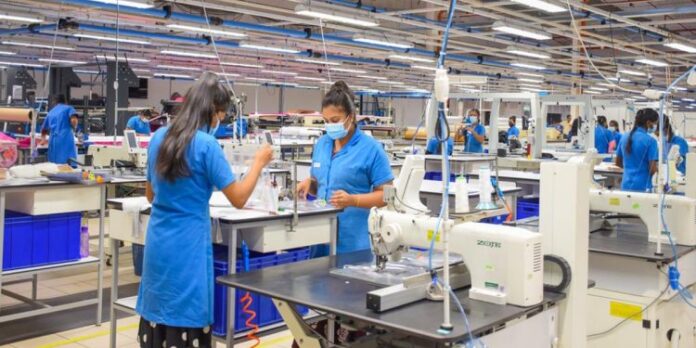By: Staff Writer
July 15, Colombo (LNW): The apparel industry has faced global economic challenges, yet Sri Lanka has gained significant success in exporting to Italy.
In 2013, Sri Lanka’s apparel exports to Italy were valued at $408 million, representing 9% of the total $4.3 billion in exports. By 2023, this figure increased by 38% to $563.5 million, accounting for nearly 12% of Sri Lanka’s total apparel exports.
Over the past two decades, while overall Sri Lankan apparel exports grew by 86%, exports to Italy surged by 658%, making Italy the largest buyer of Sri Lankan apparel in the EU.
Italy’s appreciation for quality craftsmanship has driven this growth. A key player in this success is Omega Line Ltd., which has been instrumental in fostering close ties with the Italian market.
Omega Line was established in 1999 when the Calzedonia Group, founded by Italian entrepreneur Sandro Veronesi, sought alternatives to sourcing from Eastern Europe.
Positive recommendations about Sri Lanka’s work ethic and commitment helped secure a $350 million investment, starting with a factory employing 55 people. As Calzedonia expanded to over 5,500 outlets worldwide, Omega Line grew to employ around 15,500 people.
Omega Line’s expansion included the launch of Sirio Ltd. in 2002, followed by a dedicated plant for men’s briefs in 2005 and Alpha Apparels in 2007, which focused on men’s briefs and t-shirts.
Additionally, the establishment of Benji, a facility for local production of underwear and bra cups, contributed to the local economy. A state-of-the-art facility in Vavuniya was opened in 2013, employing over 2,700 individuals, further supporting regional development. Despite post-COVID challenges, Omega Line increased its workforce by 25%.
Innovation and sustainability have been core to Omega Line’s success. In 2004, they introduced a modular production system, reducing lead times significantly. Omega Line has aligned with the “Fashion Pact” to reduce carbon output and uses solar energy in its main factory.
They are also incorporating recycled fabric and thread into production processes. The company has invested $1.85 million in a photovoltaic plant to generate approximately 2,300 kW of power, showcasing its commitment to reducing carbon emissions.
Human capital is central to Omega Line’s achievements, with extensive training programs fostering loyalty and excellence among employees. As new EU regulations approach, compliance could position Sri Lanka as a preferred supplier.
Looking ahead, Sri Lanka should leverage its strategic advantages to attract investment from key markets like Germany, the Netherlands, and Holland.
This requires proactive government measures to create an attractive investment climate, including infrastructure development and regulatory reforms. By improving the ease of doing business and eliminating bureaucratic obstacles, Sri Lanka can enhance its appeal as a manufacturing hub.

